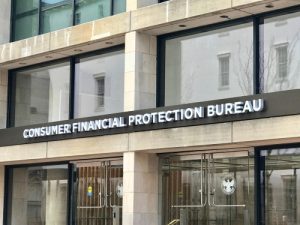
U.S. Rep. Tom Emmer (R-MN) on Monday sponsored legislation that would create a whistleblower program at the Consumer Financial Protection Bureau (CFPB).
“Instead of fear of retribution, retaliation or financial ruin, whistleblowers should be supported as they come forward and help ensure the bureau is protecting American consumers,” Rep. Emmer said on Monday. “This legislation is one small step to provide them with reasonable protections and compensation.”
If enacted, the CFPB Whistleblower Incentives and Protection Act, H.R. 5714, would amend the Consumer Financial Protection Act of 2010 to provide for whistleblower incentives and protection, according to the text of the bill.
A whistleblower is any one or two or more individuals acting jointly who provide original information relating to a violation of federal consumer financial law, consistent with any rule issued by the CFPB, the text says.
The bill would amend current law to provide compensation to whistleblowers and ensure their identities remain confidential, and would require the CFPB to submit a report to Congress no later than Oct. 30 each year detailing the awards granted to whistleblowers in the previous year.
“This common-sense fix would ensure that we fairly reward whistleblowers while also keeping our focus on being good stewards of taxpayer dollars,” said Rep. Emmer. “Our efforts to reform the CFPB should put the American consumer first, and this legislation does that.”
The CFPB regulates dozens of industries, including auto lenders, credit unions, community banks, and student loan servicers, among others, but since its creation in 2010 has placed an increasing number of burdens on the financial services industry, in turn making it harder for American consumers to access the financial products and services they need, according to information provided by Rep. Emmer’s office.
Whistleblowers have proven to be an effective means of exposing conduct within the CFPB that does not serve the American consumer, the information says.



